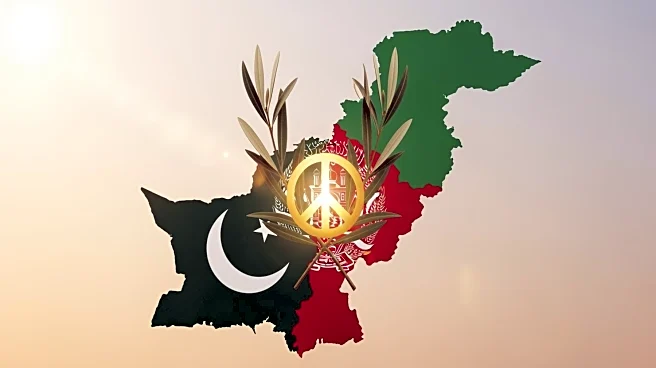What's Happening?
Pakistan has agreed to a temporary 48-hour ceasefire with Afghanistan following days of deadly clashes along the border. The ceasefire was initiated at Afghanistan's request, although the Taliban claims
it was at Pakistan's insistence. The violence has led to significant casualties, with reports of mortars falling near villages in the Pakistani border town of Chaman, prompting evacuations. Both countries have accused each other of unprovoked attacks, with Pakistan denying targeting civilians despite claims from the Taliban of civilian casualties.
Why It's Important?
The ceasefire is a critical step in de-escalating tensions that threaten regional stability. The border area has been a flashpoint for conflict, with implications for security and diplomatic relations between the two countries. The presence of militant groups like the Islamic State and al-Qaida further complicates the situation, as they seek to exploit the instability. The ceasefire provides a temporary halt to hostilities, but the underlying issues of cross-border militancy and territorial disputes remain unresolved, posing long-term challenges.
What's Next?
The ceasefire is set to last 48 hours, during which both nations will likely evaluate their positions and explore diplomatic solutions. Key border crossings remain closed, affecting trade and movement. Regional powers such as Saudi Arabia and Qatar may continue to mediate to prevent further conflict. The situation remains fluid, with potential for renewed hostilities if the ceasefire is violated. Both countries face pressure to address the root causes of the conflict to ensure lasting peace.
Beyond the Headlines
The historical context of the region, marked by decades of conflict and foreign intervention, continues to influence current events. The tribal belt along the border has been a hotspot for militant activities since the Soviet-Afghan War, and the legacy of these conflicts complicates efforts for peace. The ceasefire highlights the need for comprehensive security strategies that address both immediate threats and long-term stability.










